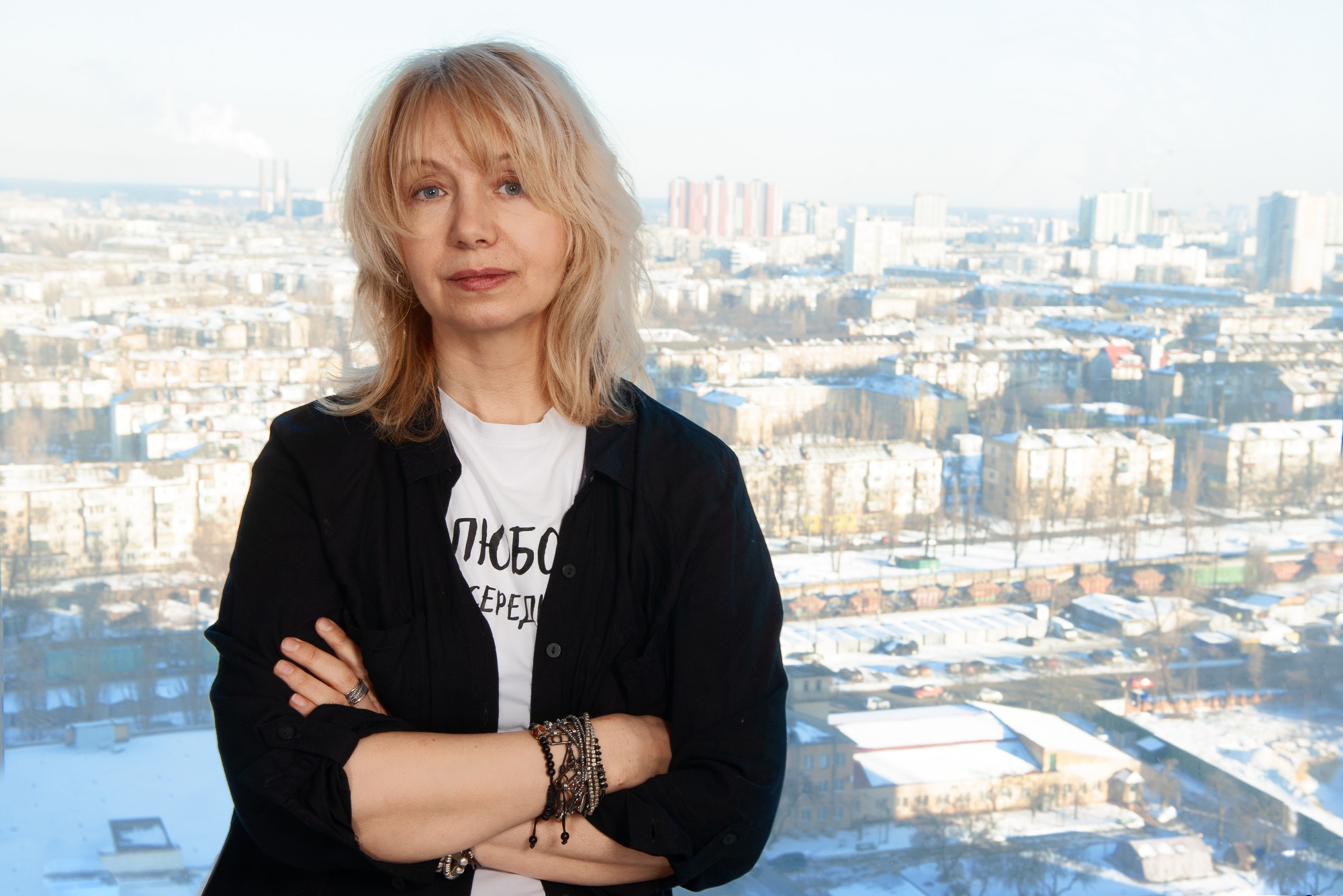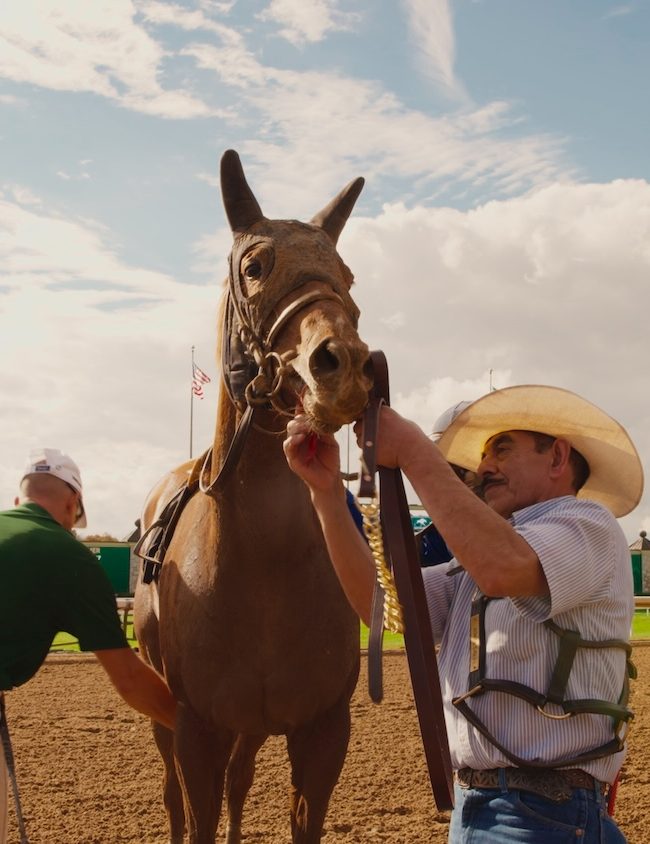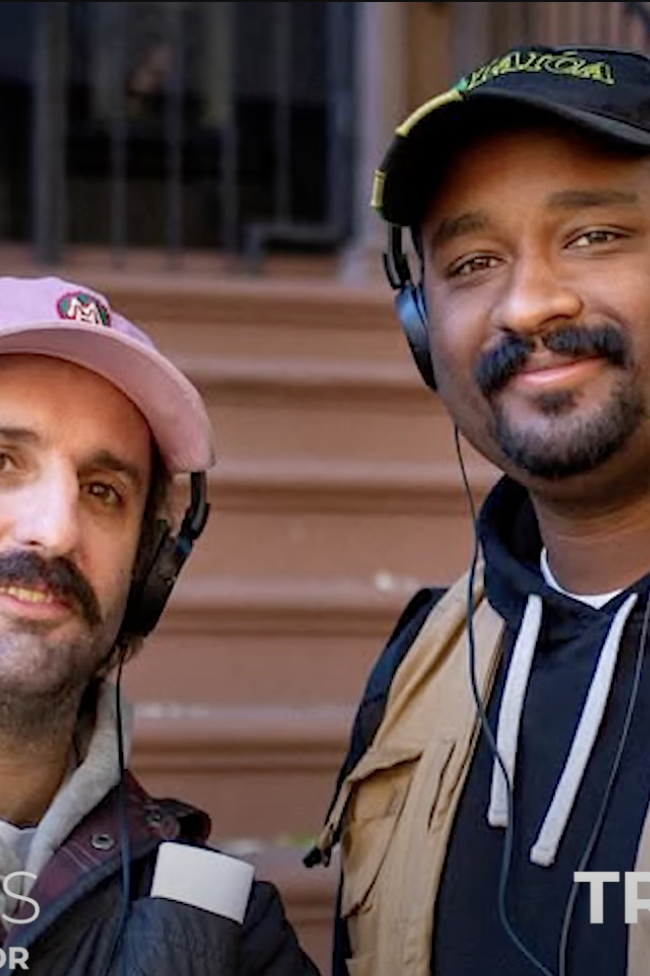A Conversation with Svitlana Lishchynska (A BIT OF A STRANGER)

“I am afraid for the future of Ukraine only if Russia gets what it wants and shows the effectiveness of its system“– Svitlana Lishchynska on A Bit of A Stranger
Ukrainian filmmaker Svitlana Lishchynska has been “a bit of a stranger” all her life. Growing up in Russian-speaking Mariupol under the Soviet regime, she became a dutiful mother there, but then took off to Kyiv in pursuit of a career in the newly independent Ukraine – leaving her young daughter in the care of her own mom back home. And now her adult daughter has her own young daughter, and is raising her with the Russian values (including support for its leader) she herself imbibed from living in the border town. If not directly from her skeptical if not cynical grandmother, whose own family ended up in Mariupol as a result of having been forcibly dispossessed by the Soviets. In other words, the intergenerational dynamics are complicated between these three very different women to say the least. And then came the full-scale invasion, which forced a reckoning with national identity and the Russian-colonized mindset for them all.
Just after the film’s Berlinale debut I caught up with the director and screenwriter, who is also a veteran of the entertainment tv industry, to learn all about turning the camera on family, and grappling with existential questions in the middle of a war. A Bit of A Stranger most recently screened in the International Competition and In Focus: Ukraine programs at the Verzió International Human Rights Documentary Film Festival (November 6-13).
Hammer to Nail: You worked in television for 25 years before making the switch to screenwriting and filmmaking in 2014 – the same year as the Revolution of Dignity. So how has your nation’s recent history shaped not just your life but your career?
Svitlana Lishchynska: In 2014, when Russia annexed Crimea and started the war in Donbas, I was working in the entertainment segment of television. People were dying, Russia flooded the media space with terabytes of lies; for me, it quickly became unacceptable to spend my life entertaining people.
SL: My mom calls herself a “grounded person” – she lives in the present and is not prone to reflections on lofty matters. My daughter worked in the beauty industry, where there was also little room for reflections on national identity.
When we started filming the movie we talked a lot about it – in front of the camera at first. Then I noticed how they became increasingly interested, and our communication on the topic of identity began to happen more and more often without the camera. We began to share information on this topic with each other, and the cycle just continued.
HtN: The fact that you filmed during a time of massive upheaval for everyone also made me wonder how fraught – or even dangerous – the production itself might have been. And how involved were your mother and daughter behind the scenes in shaping the narrative? Did they advise on cuts throughout? Did they have veto power when it came to the final version?
SL: The production of the film was no more dangerous than life in Ukraine for the last two years. Since the start of the full-scale invasion bombing occurs every day, and there are no safe places here.
As for my family’s involvement in shaping the narrative, there was none. Of course there were disputes in terms of certain scenes sometimes, about what they found uninteresting or unnecessary to film. But over time they stopped arguing and trusted more.
So no, they did not watch the footage and did not interfere with the storytelling. They actually didn’t even watch the movie until the Berlin premiere.
HtN: Though you wrote, directed and co-edited the doc yourself, I noticed that nearly a dozen others are credited for the cinematography. And then I read that your DP Petro Tsymbal, also a friend of the family, couldn’t film abroad because Ukrainian men between the ages of 18 and 60 are barred from travel under the current martial law. So how exactly did not only the war but the imposition of martial law affect the production itself?
SL: Firstly, there is a shortage of male personnel overall. Right now many cinematographers are on the frontlines, including talented film editors. And those who have not yet been mobilized are overwhelmed with work.
In terms of our production, when it was time to prepare material for sound and color correction our digital imaging technician was mobilized; which greatly slowed down and complicated the process.
HtN: In the film you say that learning to love and learning to be free are intertwined, which implies that these are not values necessarily instilled at birth in Ukraine but knowledge that must be acquired. Indeed, living in a country that puts nation above individual rights – including the right to be free and to love and be loved – seems to present upsides for this war and dangerous downsides for eventual peacetime (if not already as martial law is getting in the way of parliamentary elections this year). So do you fear for Ukraine’s future once the fighting ends, regardless of how it ends? Or do you see a shift in the USSR-colonized mindset of many because of the war?
SL: For me, the ability to love and be free are skills that need to be acquired because I grew up in a totalitarian society. My daughter, unlike me, grew up in a free country, and she has much more empathy and a sense of individualism.
The national idea of Ukraine is precisely to defend individual rights and freedoms. And it was precisely because Ukraine did not have its own state that the genocide of the peasant population occurred in the 1930s, and millions of people died.
I am afraid for the future of Ukraine only if Russia gets what it wants and shows the effectiveness of its system. Thus, there may be more adherents of Russia. In my film, I want to convey what makes me Ukrainian and what the aforementioned national idea means to me, a person without roots. Ukrainians are a political nation united by common values. And colonized thinking.
That said, the invasion has awakened in many people an interest in the origins of this war, in history; and not the one written in Soviet or Russian textbooks.
– Lauren Wissot











